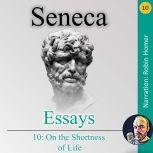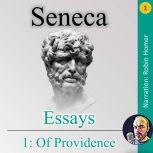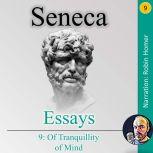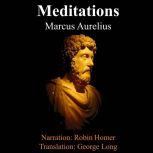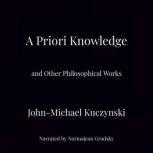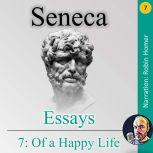
Details
On the Duty of Civil Disobedience
Author: Henry David Thoreau
Narrator: George Easton
Unabridged: 0 hr 51 min
Format: Digital Audiobook
Publisher: Findaway
Published: 12/14/2022
Genre: Philosophy - Essays
Synopsis
Henry David Thoreau's essay, On the Duty of Civil Disobedience, is a masterful exploration of the moral imperative to resist unjust laws and unjust governmental systems. By deploying a carefully crafted philosophical argument, Thoreau contends that citizens have an obligation to disobey any law that violates their conscience or enshrines injustice. Read in English, unabridged.
by Seneca
On the Shortness of Life was written by Seneca around the year 49AD. He argues that we waste so much time because we do not properly value it. We expend great effort in protecting other valuables such as money and property, but because time appears ...
Published: 09/04/2019
by John-Michael Kuczynski
The empirical sciences make assumptions that they are not themselves capable of justifying. Philosophy justifies those assumptions; that is its job.
Published: 10/18/2021
by Seneca
The first book in the essays of Seneca deals with good and evil. The dialogue is opened by Lucilius complaining with his friend Seneca that adversities and misfortunes can happen to good men too. How can this fit with the goodness connected with the...
Published: 08/13/2019
by Seneca
The ninth essay from Lucius Annaeus Seneca. The work opens with Serenus asking Seneca for counsel, and this request for help takes the form of a medical consultation. Serenus explains that he feels agitated, and in a state of unstable immobility, "a...
Published: 08/27/2019
by Marcus Aurelius
Marcus Aurelius ruled the Roman empire from AD 161-180. He wrote the 12 books of the Meditations as a source for his own guidance and self-improvement. It is possible that large portions of the work were written at Sirmium, where he spent much time ...
Published: 07/18/2019
by John-Michael Kuczynski
Five classic works of modern analytic philosophy. What is an intention? Kant's Ethics Philosophical Knowledge A Priori Knowledge Analytic Truth vs. Formal Truth
Published: 08/08/2021
by Seneca
Marcia actively mourned the death of her son Metilius for over three years. In Of Consolation to Marcia, Seneca attempts to convince her that the fate of her son, while tragic, should not have been a surprise. She knew many other mothers who had los...
Published: 10/09/2019
by Seneca
Of a Happy Life is an essay written by Seneca around the year 58 AD. It was intended for his older brother Gallio, to whom Seneca also dedicated his dialogue entitled De Ira ("On Anger"). It is divided into 28 chapters that present the moral thought...
Published: 08/21/2019
by Junichiro Tanizaki
‘Were it not for shadows there would be no beauty.’ In Praise of Shadows is an eloquent tribute to the austere beauty of traditional Japanese aesthetics. Through architecture, ceramics, theatre, food, women and even toilets, Tanizaki exp...
Published: 12/08/2017

